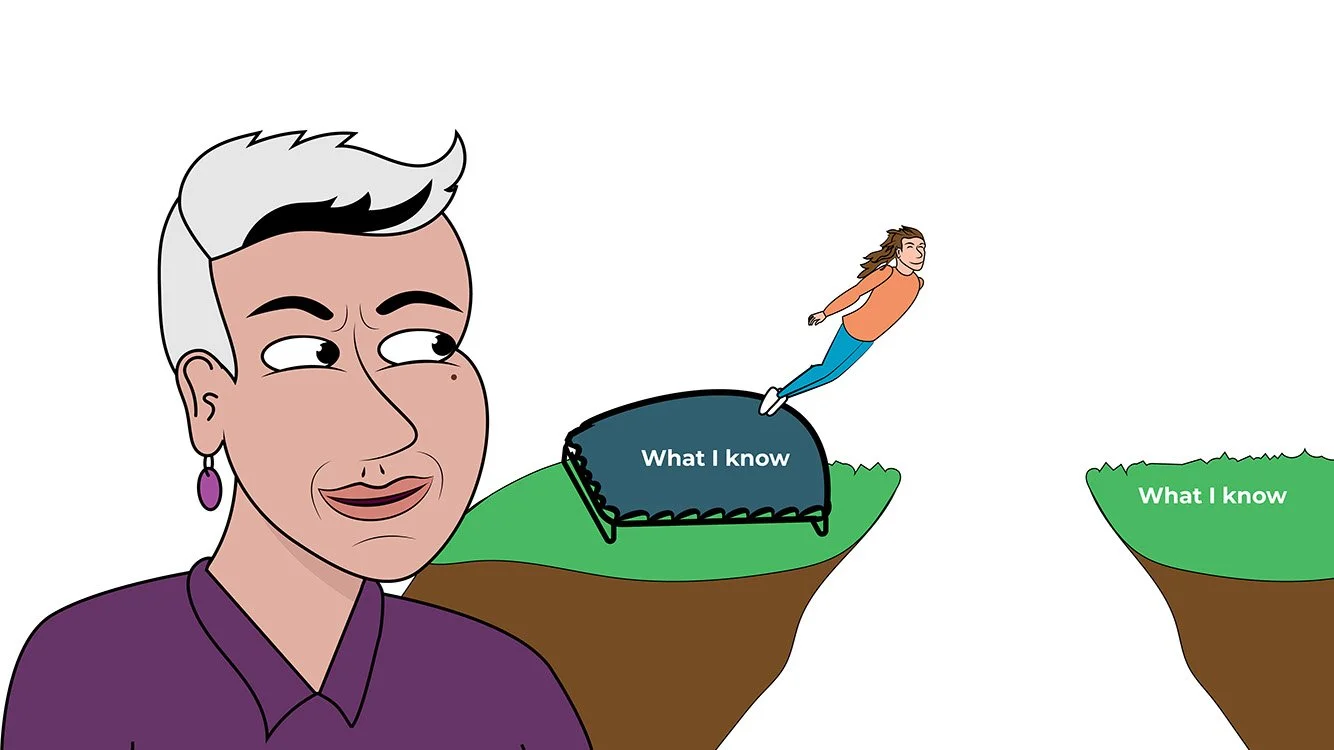Changing ... Assumed understanding
© 2024, James McLean
What reflections do I have on the past week that may turn into something useful for us all?
Two stabbings in Sydney of which to make meaning.
A new client is emerging in the implementation of climate policies and strategies. In the 'getting to know you' space, we are trying to understand each other's needs.
A coaching conversation with a valued leader in the sustainability space where the inquiry began with the use of language in our paradigm-shifting world and became 'meaning-making'.
So, let's zero in on understanding each other and meaning-making. This topic builds upon my newsletter last week about having 'difficult' conversations about existential topics (like current climate science and what we need to do now).
Making meaning
This is so important because it is one of the major inputs to living systems like us: to learn, adapt, or change. As the information comes in from the outside world, we assess its relevance to us. We consciously or often unconsciously decide what this means quite quickly.
I'm reminded of the "Ladder of Inference" model I first encountered in "The Dance of Change" by Peter Senge et al. in about 2000. Have you seen it? Much research has been undertaken since this model, so let's hold it lightly. That said, it is still a useful way of raising awareness about how what we already believe or hold important influences the things we see around us.
The lowest rung (select data) represents how the data we select to take notice of is limited by what we believe is important. That data may be in the form of a conversation we're having with someone, an article we're reading, or even just what we're noticing as we go about our day.
Rungs 2 (paraphrase the data) and 3 (name what's happening) represent the phases of interpreting the data to understand what is happening. The role of language is important here. Have you noticed how we can all have subtly different understandings of the meaning of words? For example, I was a part of an interdisciplinary research team some time ago, and for a year, we all used the term 'research', without realising that it meant a slightly different process for at least two different groups within the whole team. As we now encounter important conversations about climate and sustainability, understanding what these two words mean when we use them in conversations with each other is an important step.
Rung 4 (explain/evaluate what's happening) looks straightforward, but the different ways we think (for example, using a mechanistic, reductionistic paradigm of thinking or a more holistic, systems/complexity paradigm of thinking) make a huge difference in our evaluation of what is happening. Let me spell that out a bit more, continuing with the climate science example. If we assume that a cause produces a directly proportional and instantaneous effect (like pushing an object with your hand) then it's really hard to understand the urgent need for action in a complex system like our global climate. Our climate system is full of long feedback loops that delay the effect so that by the time we notice it, it appears disproportionate and unrelated to the cause.
I would add another arrow onto the circle to the left of the model (contexts, assumptions, values) to connect it to Rung 4 as well. There are heaps of assumptions being made at this level too.
Finally, on Rung 5 (decide what to do) we examine the data, refer it to our purpose and what we value most, and decide what to do (the arrow connecting this rung to the circle on the left could go both ways, really). We either maintain our current course of action or try something different.
This is just a quick review of how we might make meaning. And that is complex enough, isn't it?
We are all such complex beings in our own right. In our interactions with others, we tend to zero in on the 'bottom line' of what we have perceived. We see their behaviour and make all sorts of interpretations! The complexity of each of us is then compounded exponentially by the complexity of everyone else.
Making meaning in groups takes a great deal of goodwill, patience, curiosity, listening, trust and humility. Is this your experience too? Changing our assumed understanding.


